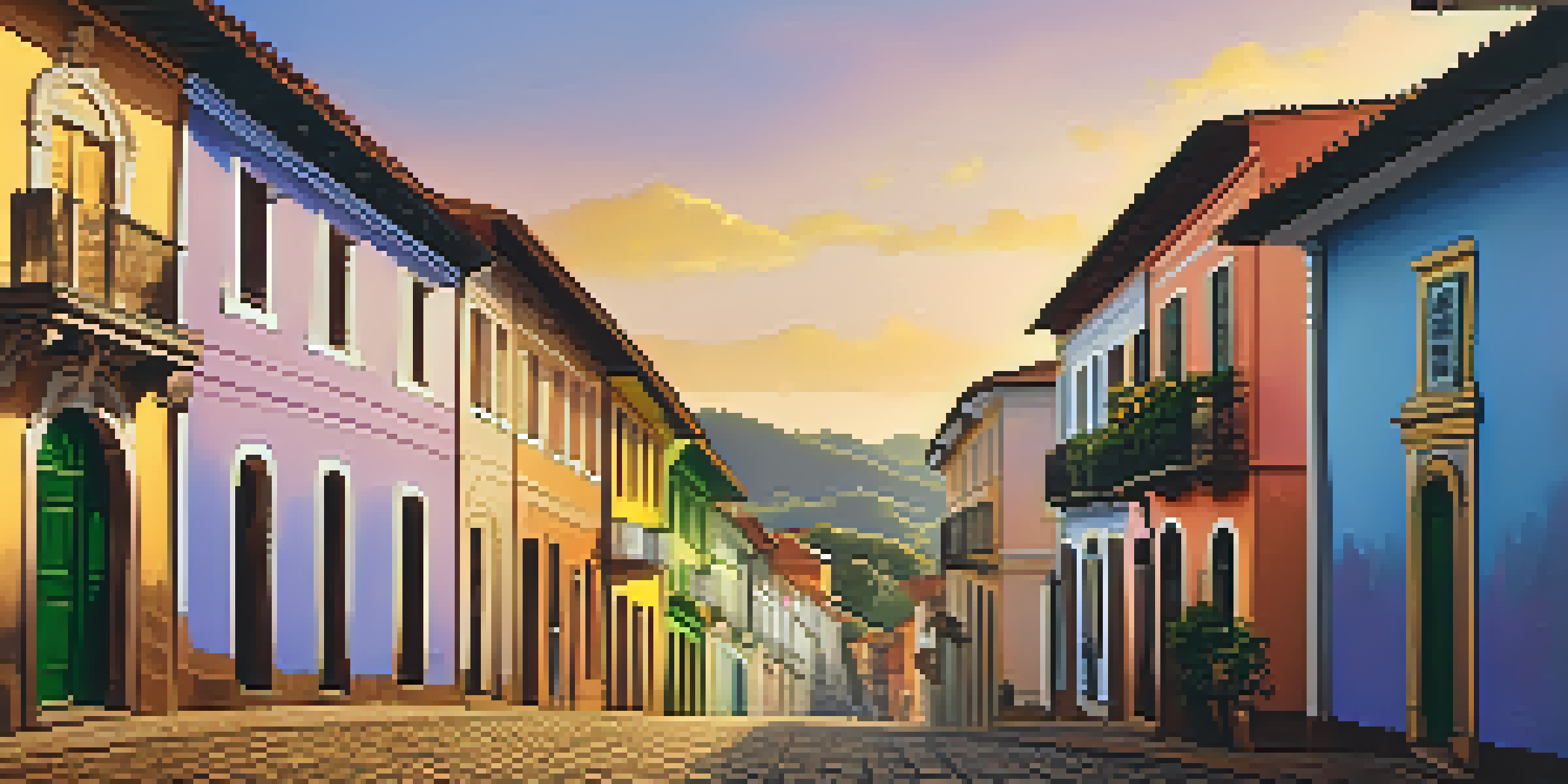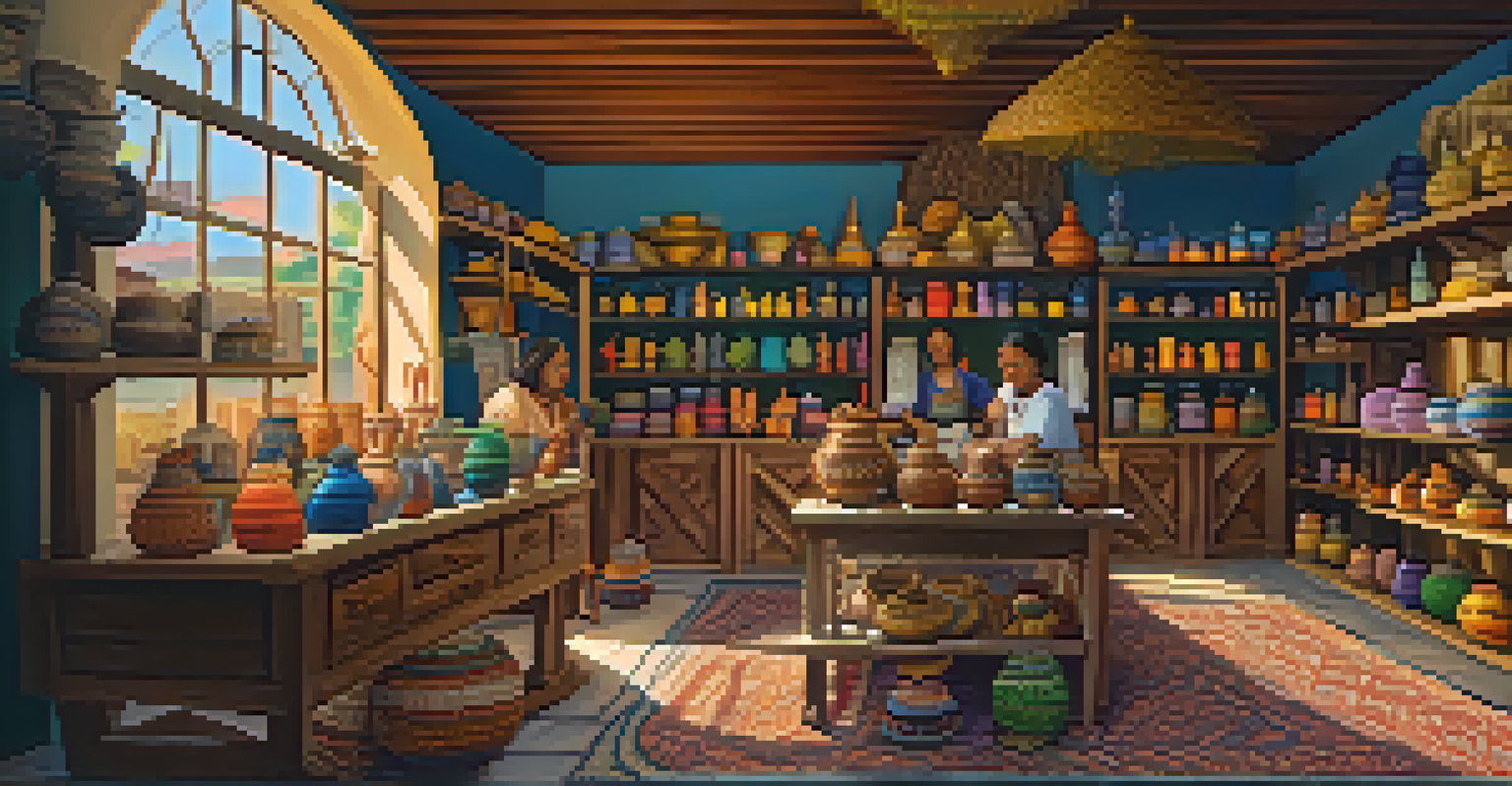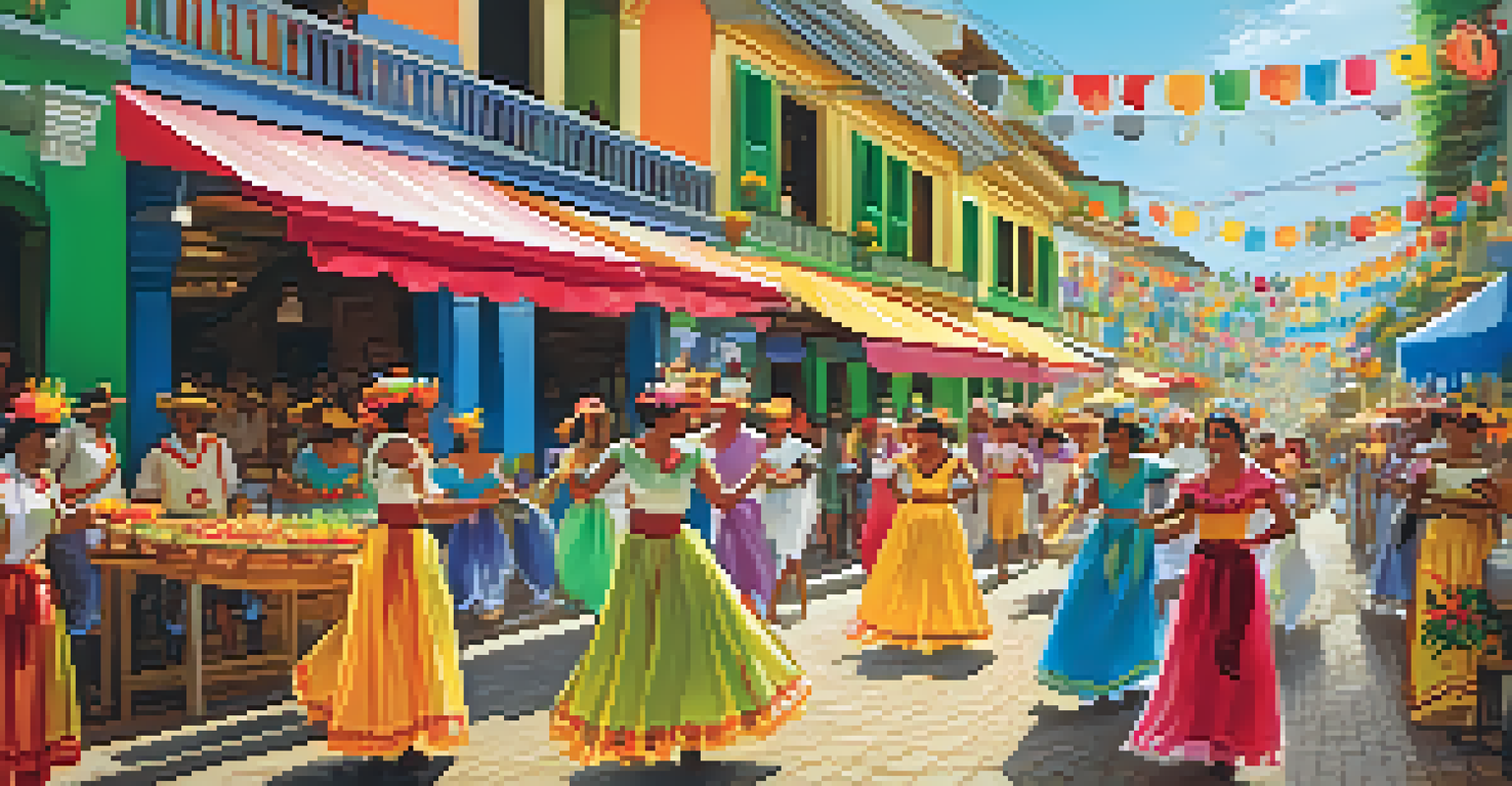The Charm of Brazil's Colonial Towns: A Tourist's Perspective

A Glimpse into Brazil's Rich Colonial History
Brazil's colonial towns offer a fascinating peek into its past, showcasing architecture and culture shaped by centuries of influence. The Portuguese established these towns in the 16th century, creating vibrant centers of trade and religion. Walking through their cobblestone streets is like stepping back in time, allowing visitors to appreciate the blend of indigenous, African, and European cultures that define Brazil.
The best way to understand a city is to walk its streets and to take in its past.
Each town has its unique story, from Ouro Preto's gold rush era to Paraty's role as a port for exporting sugar. These histories come alive as you explore colorful facades adorned with intricate baroque details and historic churches that echo the past. It's a living museum where every corner has a tale to tell.
Related Resource
Whether you're an architecture enthusiast or a history buff, the charm of these towns captivates the imagination. The stories of resilience and adaptation are etched into the buildings and streets, inviting travelers to connect with Brazil's rich heritage in a personal way.
The Alluring Architecture of Colonial Towns
One of the most striking features of Brazil's colonial towns is their stunning architecture. The mix of Portuguese, African, and indigenous styles creates a visual feast that is both beautiful and intriguing. From the ornate churches like São Francisco de Assis in Ouro Preto to the charming homes painted in pastel colors, every structure has its own character and story.

As you wander the narrow streets, you'll notice how the architecture reflects the town's history and the influences that shaped it. Baroque-style churches with gilded interiors stand proudly alongside simple, yet charming, colonial houses. This architectural diversity not only enhances the aesthetic appeal but also tells the story of the people who lived there.
Explore Brazil's Colonial History
Brazil's colonial towns offer a rich tapestry of history, showcasing a blend of indigenous, African, and European cultures through their architecture and stories.
For photographers and architecture lovers, these towns provide endless opportunities to capture beauty. The interplay of light and shadow on the historic buildings at different times of the day creates a magical atmosphere that is hard to resist.
Local Culture and Festivals: A Celebration of Life
Brazil's colonial towns are not just about history; they are vibrant hubs of culture and celebration. Throughout the year, various festivals showcase local traditions, music, and cuisine. For instance, the Festa do Senhor do Bonfim in Salvador offers a colorful display of faith and community spirit that draws visitors from far and wide.
Food is the ingredient that binds us together, reflecting our history, culture, and community.
These celebrations provide a fantastic opportunity for tourists to engage with locals and experience authentic Brazilian culture. From lively samba dancing to traditional food stalls, the energy is infectious, making you want to join in the festivities. It's a perfect way to forge connections and create lasting memories.
Related Resource
Understanding local customs through festivals allows travelers to appreciate the uniqueness of each town. Participating in these events not only enriches your travel experience but also supports local artists and businesses, fostering a sense of community.
Culinary Delights: A Taste of Brazil's Heritage
No visit to Brazil's colonial towns is complete without indulging in the local cuisine. These towns are home to delicious dishes that reflect their diverse cultural influences. From feijoada, a hearty black bean stew, to pamonha, a sweet corn treat, the flavors are as rich as the history behind them.
Street food stalls and local restaurants offer an array of culinary experiences that delight the senses. Enjoying a meal at a quaint café while surrounded by historical charm offers an unmatched dining experience. The fusion of flavors and the use of fresh, local ingredients make each meal memorable.
Savor Unique Culinary Experiences
The local cuisine in Brazil's colonial towns reflects diverse cultural influences, providing travelers with delicious dishes that deepen their connection to the region.
Food is a vital part of Brazilian culture, and trying regional specialties allows you to connect with the locals on a deeper level. Sharing a meal with new friends not only satisfies your hunger but also enriches your understanding of the town's heritage and traditions.
Artisan Shops: Treasures of Local Craftsmanship
Exploring artisan shops in Brazil's colonial towns is like uncovering hidden treasures. Local artisans showcase their craftsmanship in a variety of forms, from handmade jewelry to intricate pottery. These unique creations reflect the culture and heritage of the region, making them perfect souvenirs.
Shopping in these charming boutiques offers a chance to meet the talented individuals behind the art. Many artisans are eager to share their stories and techniques, providing insight into the creative process. This personal connection transforms a simple purchase into a meaningful experience.
Related Resource
Supporting local artisans not only helps preserve traditional crafts but also stimulates the local economy. As you collect these one-of-a-kind pieces, you carry a piece of Brazil's rich cultural tapestry back home with you.
Natural Beauty Surrounding the Colonial Towns
The charm of Brazil's colonial towns is further enhanced by their stunning natural surroundings. Many towns are nestled in breathtaking landscapes, from lush mountains to pristine beaches. This picturesque setting creates the perfect backdrop for exploring the rich history and culture.
Outdoor enthusiasts can enjoy various activities such as hiking, bird-watching, or simply taking a leisurely stroll through nature. The combination of historical exploration and natural beauty offers a balanced travel experience that caters to all interests. Imagine hiking to a viewpoint and being rewarded with a panoramic view of a colonial town below, a scene that feels almost like a painting.
Engage with Local Artisans
Shopping in artisan shops allows visitors to discover unique crafts and support local artisans, fostering a meaningful connection with Brazil's rich heritage.
The blend of history and nature makes these towns unique destinations. Visitors can revel in the tranquility of nature while reflecting on the vibrant stories of the past. It's a reminder that history is not just confined to buildings but is also intertwined with the landscapes that surround us.
Planning Your Visit: Tips for an Unforgettable Experience
Planning a trip to Brazil's colonial towns can be exciting, but a few tips can enhance your experience. Start by researching the best times to visit, as some towns may host special events or festivals that you wouldn't want to miss. Consider creating an itinerary that allows you to explore multiple towns, as they each have their unique charm.
Don’t forget to immerse yourself in the local culture by learning a few basic Portuguese phrases. While many people in tourist areas speak English, a friendly 'obrigado' (thank you) goes a long way in connecting with locals. Also, try to visit local markets or events to experience the town's culture firsthand.

Lastly, take your time and soak in the surroundings. These towns have a relaxed pace, encouraging you to wander and discover hidden gems. Embrace the charm, engage with the community, and enjoy every moment of your journey through Brazil's colonial heritage.